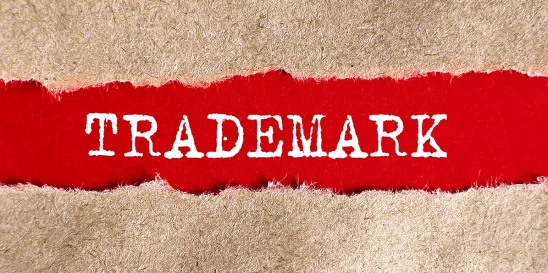The Federal Circuit recently issued a decision with important ramifications on how petitions for cancellation due to fraud will be handled by the Trademark Trial and Appeal Board (“Board”) going forward.
In Great Concepts LLC v. Chutter, Inc., the Court, with a 2-1 majority, found that the Board wrongly cancelled the registration of a trademark holder due to the filing of a fraudulent declaration by its former attorney to obtain incontestable status of the trademark “DANTANNA’S.” The Board had historically held that it possesses the authority to cancel registrations altogether due to fraudulent incontestability declarations, thus, the panel’s ruling presents a clear rejection of that practice.
The operative facts of the case are relatively straightforward. The “DANTANNA’S” trademark issued in 2005. In 2010, the trademark owner proceeded to file a declaration of incontestability which falsely stated that there were no pending proceedings involving the mark. In fact, there was a pending federal lawsuit involving the mark and a then-pending cancellation proceeding based on likelihood of confusion grounds. In 2015, the appellee petitioned the PTO for cancellation of the mark based on the fraudulent declaration. In 2021, the Board cancelled the trademark pursuant to Section 14 of the Lanham Act.
In overturning the Board ruling, the majority focused its analysis on the plain language of the Lanham Act. Section 14 allows for a petition to cancel registration of a mark that was “obtained fraudulently.” There was no dispute that the mark obtained in 2005 was not obtained fraudulently. Thus, the Court reasoned that because registration and incontestability are different rights, “fraud committed in connection with obtaining incontestable status is distinctly not fraud committed in connection with obtaining the registration itself.” (emphasis in original). As such, the fraudulent declaration did not contribute to the trademark owner originally obtaining registration for its mark, and thus could not be a basis for a Section 14 cancellation proceeding.
As part of the declaration in support of incontestability, the trademark owner also included a declaration of continued use under Section 8 of the Lanham Act. The appellee contended (and the dissent agreed), that the fraudulent incontestability declaration effectively rendered the Section 8 declaration fraudulent as well, thus constituting grounds for cancellation. The majority dismissed this argument on the ground that even though the trademark owner submitted a combined declaration, the declarations were distinct such that any falsity in the incontestability portion did not affect the continued use declaration.
The majority also disagreed with the dissent’s view that prior Federal Circuit decisions supported the Board’s finding. None of those decisions mentioned Section 15 incontestability declarations, and the majority emphasized that the question of whether a fraudulent Section 15 declaration can be a basis to cancel a registration is a matter of first impression. Some of those cases relied upon a 1975 decision by the predecessor to the Board, the Court of Customs and Patent Appeals (CCPA), which the Board also relied upon in these proceedings. While that decision involved a similar scenario of a combined Section 8 and Section 15 declaration in which the Section 15 portion was fraudulent, the effect of that fraud was not to invalidate the registration, but rather to preclude the trademark owner from relying on incontestable status to oppose an applicant’s attempt to register its own similar mark.
Finally, the Court dismissed the policy arguments raised by the appellee and the dissent to the effect that this holding will encourage fraud because the only consequence of fraud would be loss of incontestable status. The Court noted that a loss of incontestability is an important sanction because incontestable status makes it much more difficult to challenge a trademark, and there are other sanctions available to dissuade mark owners and/or attorneys from presenting fraudulent declarations (e.g., fines and/or penalties under 18 U.S.C. Section 1001).
In sum, this decision represents a restrained approach by the Federal Circuit in not extending the powers of the Board beyond what Congress specifically allowed. Practitioners and trademark owners alike should remain wary of the consequences of presenting fraudulent declarations whatever the context, but, for now, the drastic sanction of cancellation of a trademark registration due to a fraudulent incontestability declaration is no longer a possibility.
The case is Great Concepts LLC v. Chutter, Inc., —F.4th —-(2023), 2023 WL 6854647.




 />i
/>i

